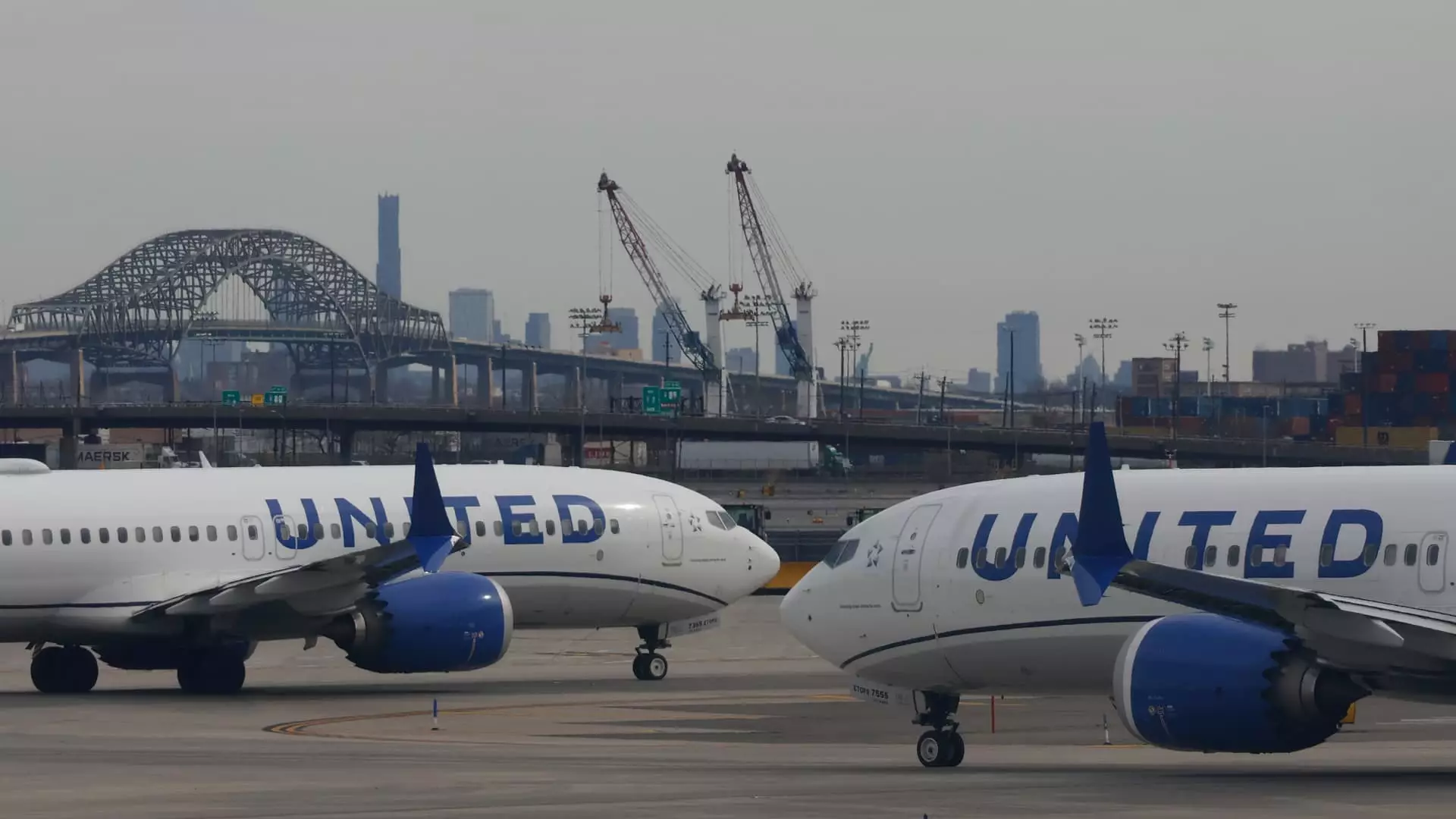Newark Liberty International Airport is a vital hub in the U.S. aviation landscape, yet it has recently transformed into a scene of chaos, epitomized by United Airlines’ announcement to cancel 35 roundtrip flights daily. Observing this distressing trend, one can’t help but feel infuriated when realizing that this adjustment arises not merely from an isolated issue but a confluence of poor planning, staffing shortages, and outdated technology. These cancellations reflect systemic inadequacies that raise alarm bells about our aviation safety and efficiency.
The Stakeholder Dilemma: Who is to Blame?
In a statement from United Airlines CEO Scott Kirby, responsibility was swiftly deflected toward the Federal Aviation Administration (FAA). While it’s easy to point fingers during a crisis, the reality is far more complex. For years, Newark’s air traffic control has been characterized by chronic understaffing, a truth Kirby admitted openly. If one examines the larger context, it’s clear that United itself has played a role in creating an environment where systemic failures can thrive. Without accountability and investment in human resources, this chaos will continue to pervade our skies.
The issue of staffing shouldn’t come as a surprise. It is distressing to learn that around 20% of air traffic controllers have recently left their posts due to technology failures, which raises questions about employee morale and operational management at the FAA. The discontent among air traffic controllers suggests a critical breakdown in leadership at both the corporate and governmental levels. The FAA’s inability to foster a skilled workforce reflects a broader negligence in infrastructure and support, urging us to wonder whether the future of air travel will continue to be marred by similar crises.
A Call for Action: Flight Restrictions as a Solution?
Kirby suggested imposing flight restrictions at Newark to curb the traffic malfunctions that have persisted for far too long. While such measures may seem sensible under current conditions, this proposition also exposes a disconcerting reality: why has it taken an outright crisis to consider this course of action? The aviation sector must not only be reactive but proactive in managing its logistics.
In an age where technology dominates, one would expect that operational systems become increasingly reliable. Yet, Kirby’s acknowledgment of “system failures due to outdated technology” speaks volumes about the negligence that has plagued the aviation industry. Instead of investing in a robust and innovative air traffic control system, the focus seems to dwell on temporary fixes. Transportation Secretary Sean Duffy’s acknowledgment of the need for an “all-new air traffic control system” is a rallying cry for an overhaul, yet words must soon translate into concrete actions that prioritize the lives and experiences of millions of travelers.
The Human Cost: A Misguided Focus on Profit over People
In the face of mounting complaints and operational failures, United Airlines has chosen to adopt a reactive stance, waiving change fees and fare differences for those affected. While this measure appears considerate, it raises concerns about the sincerity of United’s commitment to customer satisfaction. Offering financial recompense does little to mitigate the stress and inconvenience experienced by passengers whose travel plans have been shattered. Instead, it feels like a Band-Aid solution over a gaping wound that illustrates a failure of corporate responsibility.
This misalignment of priorities suggests a troubling trend where profit margins are prioritized over customer well-being. If United is willing to cancel a significant portion of its Newark flights to secure operational ease, what does this say about the values guiding the company’s decision-making? The essence of customer service is deteriorating within a framework that seems more concerned with maintaining short-term efficiency than genuinely addressing systemic flaws.
The recent flight cancellations at Newark serve not only as a moment for reflection on operational issues but as a broader indictment of a failing system that needs an immediate and comprehensive examination. Our transportation networks deserve better—travelers deserve better. As we navigate these turbulent times in aviation, let’s aim for accountability, clarity, and commitment across the board.

